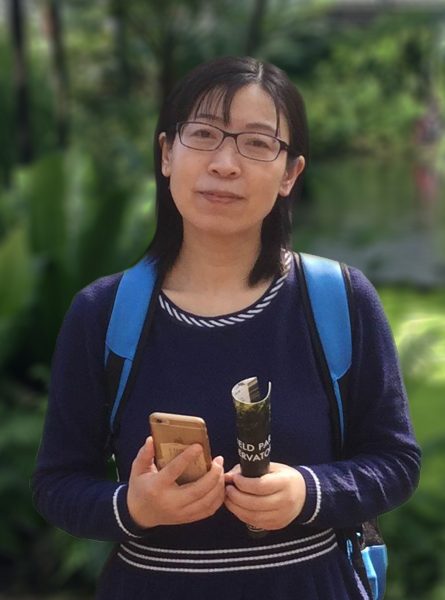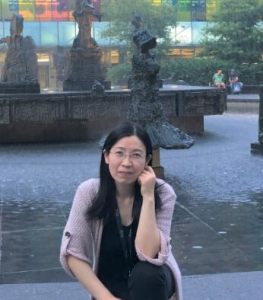
The Graduate School is pleased to announce that Hongmei Lu is Michigan Tech’s nominee for the 2021 CGS/ProQuest Distinguished Dissertation Award in the area of Humanities and Fine Arts. Dr. Lu received her Ph.D. in Environmental and Energy Policy in the department of Social Sciences in 2020 and was advised by Dr. Audrey Mayer. Her dissertation was entitled, “From Garden City to Sponge City: Urban Green Infrastructure Policy Development.” As described by her advisor, her dissertation focused on Chinese policies and policy actors in the rapidly-emerging area of urban green infrastructure. Green infrastructure is increasingly used around the world to solve common environmental problems in cities, such as flooding, air pollution, and climate change. In China, as in the rest of the world, urban green infrastructure has a significant environmental justice dimension; green space is more commonly found in wealthier neighborhoods and has a positive feedback effect on real estate prices and rents. In response to the rapid urbanization of China, the central government has put forth an increasing number of policies (such as the Sponge City program) to try to address flooding and pollution issues through the implementation of green infrastructure. As Hongmei’s work is revealing, the success or failure of these policies often rely upon the presence of astute policy agents who can shepherd programs and projects through a sometimes-byzantine bureaucratic system.
Currently, Dr. Lu is working with Dr. Angie Carter on a community-based research project of local food system development in the Western Upper Peninsula, Michigan, and explores how grassroots co-production of a local food system can improve community wellbeing, especially food security and food sovereignty during and after the COVID-19 pandemic.
Dr. Lu was nominated by the Social Sciences department and the nomination was supported by Dr. Audrey Mayer, Dr. Shan Zhou, and Dr. Melissa Baird.
The CGS/ProQuest Award operates on a two-year cycle with regard to fields of competition. The next competition will occur in 2022 and will consider applicants who have completed their degrees between July 1, 2021, to June 30, 2022 in the fields of Mathematics, Physical Sciences & Engineering; and the Social Sciences. Please consider nominating your Ph.D. graduates next year.



